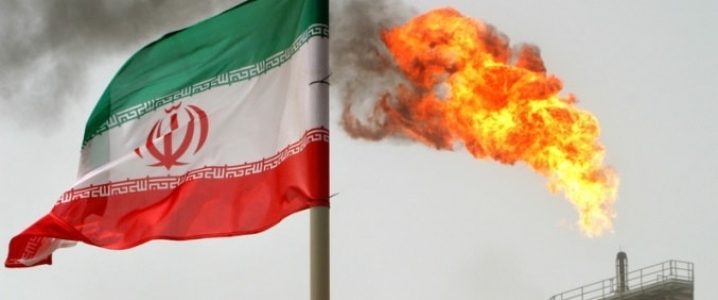U.S. President Trump has made a deal with some OPEC producers to keep prices high as they support the U.S. economy and boost federal taxes. This is what Iran’s Energy Minister Bijan Zanganeh said on state TV this week as quoted by Bloomberg, adding that Trump was engaging in “shenanigans” on the oil market.
It’s not too hard to guess which the OPEC producers Zanganeh mentioned are. Saudi Arabia has been a strong opponent of the Iran nuclear deal and was now quick to offer to fill any gap that new U.S. sanctions would leave on international oil markets by curbing Iran’s abilities to export its crude.
Saudi Arabia is also the most vocal supporter of ever-higher prices, as it prepares to list its state energy giant Aramco and struggles with a much too high breakeven price for its crude.
Iran, on the other hand, has repeatedly called for more “reasonable” prices, which for the Tehran officials are prices between US$60 and $65 a barrel. Like many analysts, Iran is concerned that pricey crude oil will start affecting demand, and not in a good way.
Now, some forecast oil could reach US$100 a barrel by next year, with one hedge fund manager, notorious Pierre Andurand, going as high as US$300 a barrel. Apparently, according to the bull camp, oil can reach US$300 without hurting demand enough to start sliding back down. Related: U.S. Shale’s Refining Crisis
This stance is questionable, to say the least. Already some experts, such as Reuters’ John Kemp, are warning that the imposition of new U.S. sanctions on Iran would spur other OPEC members into increasing their production levels, which would effectively put an end to the OPEC production cut deal. Should this happen, prices will not get even close to US$100, they will start sliding back to US$60.
Another group of people tracking events in the oil world believes that sanctions will not have a serious negative effect on Iranian oil shipments to its biggest clients. China has stated its commitment to Iranian imports, and as an added benefit for both, is ready to settle these imports in yuans, undermining the dominance of the greenback. Other importers, including staunch U.S. allies Japan and South Korea, are also looking for ways to keep on buying Iranian crude.
By Irina Slav for Oilprice.com
More Top Reads From Oilprice.com:
- How Much Iranian Oil Can Trump Disrupt?
- Permian Bottleneck Provides Huge Opportunity For Oil Traders
- Bank Of America: Oil Prices Could Hit $100 Next Year



















The Iranian minister’s views on what level oil prices should be namely, $60-$65 a barrel are well known. His views have been prompted by many factors: one is to show the world that he has influence on the decision-making inside OPEC when in fact, it is Saudi Arabia supported by its allies inside the organization that has the final say on oil prices and levels of production inside OPEC.
Second, Iran’s budget is 60% dependent on the oil revenues compared with 90% for Saudi Arabia. So he doesn’t want the Saudi economy to get stronger at a time of escalating tensions between the two countries. Third, by calling for a $60-$65 oil price, the Iranian oil minister wanted to sound reasonable at a time when Iran will not benefit much from rising oil prices since it can’t raise its production beyond the current 3.75 million barrels a day (mbd).
Contrary to analysts’ and bank’s projections, Iran will not lose a single barrel of oil exports. More than 75% of Iran’s oil exports go to China and the Asia-Pacific region while the remaining 25% go mostly to the European Union (EU). China, India and other Asia-Pacific region countries as well as the EU are not going to comply with US sanctions and reduce their imports of Iranian crude.
And while Saudi Arabia would welcome the opportunity to boost production to offset a so-called decline by Iranian oil exports, it has to balance the benefits from increased production against a collapse of the OPEC/non-OPEC production cut agreement. A collapse of the agreement risks bringing back glut to the market with very adverse repercussions for the Saudi economy which suffered most from the 2014 oil price crash.
On balance, I believe Saudi Arabia will not risk the collapse of the production agreement which it has worked tirelessly with Russia to bring it into existence for a short-term benefit just to score points against Iran and to please President Trump.
Dr Mamdouh G Salameh
International Oil Economist
Visiting Professor of Energy Economics at ESCP Europe Business School, London
Any part of the bull camp thinking that the market can get to $300 without hurting demand is delusional. $300 oil would absolutely decimate the economy while also killing demand in basically all sectors.